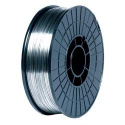|
Speaking as somoene who just tried a 'trade' I can tell you its not worth it unless you have a record or are simply incapable of learning the material in school.
|
|
|
|

|
| # ? May 15, 2024 23:46 |
|
Nihilanthic posted:Speaking as somoene who just tried a 'trade' I can tell you its not worth it unless you have a record or are simply incapable of learning the material in school. Dare I ask why?
|
|
|
|
Has anybody's membership in tau beta pi helped them out in any appreciable way?
|
|
|
|
plester1 posted:Dare I ask why? Wages suck, have been flat for a long time. Benefits are nonexistent except for workman's comp. Safety? HAHA. You bust your rear end for a long rear end time and the only time the money comes anywhere near 'worth it' is when you're making overtime, which you do - all the time. Plus everyone assumes you're so stupid that's all you can do to top everything off. I worked non union in Florida, so YMMV - but I can say that a 70 hour a week shipyard job that literally takes up half of your waking hours in a day is not worth it, at all, no way no how. It was also at night and the people I worked with were like a cross of teabaggers and frat boys/jackass rejects, so I probably had the worst it can get in the USA without someone getting killed on the job. OSHA was poo poo on just as bad as the navy welding codes. We had to sneak in 6011 rods and sneak out the stubs! It was for welding really thin non critical poo poo like deck rails, but still... lets take a dump on the Military! MIC in action! Anyway, I busted my rear end to be a pipe welder, and what I got to show for it was a joke. It was only about 8 months of my life involved to learn the trade, though, so its not that huge of a loss. I was looking at "hrm, less investment to do this first... if it works great, if not I'm not years behind!" and just hedged a bet. I don't recommend anyone else do so, unless you simply cannot cut it in school. The economy being a sad joke and men with decades of experience not being able to find work is also not that great when you're just out of school, and the state of the industry is that you basically have to lie and say you have experience to get your first job, because apparently schooling is looked upon badly! Its definitely not for me, you could say. Sure if you just hate paper work and like to use your hands and don't mind killing your eyes a trade UNION would be a good idea, but non union work these days as a actual laborer who makes things is retarded if you care about your health and future.
|
|
|
|
lightpole posted:An engineering degree simply lets you skip the apprenticeship and go in as a journeyman. I have to call some BS on this statement. This is not 1970... You cannot just start working some where and then sit for the PE after your 4-5 years of experience. You have to get an engineering degree from an ABET school, then pass the FE. You then become an EIT and realistically then start your "Journeyman-ship". The degree doesn't met you skip anything because there is no other way to get to the next step.
|
|
|
|
.
Thoguh fucked around with this message at 14:26 on Aug 10, 2023 |
|
|
|
Nihilanthic posted:Sure if you just hate paper work and like to use your hands and don't mind killing your eyes a trade UNION would be a good idea For any aspiring engineers who are scared of the idea of being a desk jockey, realize that there are many dimensions to engineering in the workplace. If you don't think design work is your cup of tea because you're afraid of being chained to a desk cranking out diagrams, look into doing something along the lines of operations, aka "ops". These are the people who are building chemical plants, dressing up in bunny suits and making semiconductors, doing analysis on steel composition, etc... As I mentioned before, I work partially in a chemistry lab and partially on a production floor. The only real paperwork I have to do is signing my time sheets or putting in purchase orders to buy equipment or chemicals. An engineering degree will not doom you to a lifetime of paper pushing. Hell, I got into engineering for the exact reason that I was afraid of living behind a desk like an accountant or something.
|
|
|
|
plester1 posted:For any aspiring engineers who are scared of the idea of being a desk jockey, realize that there are many dimensions to engineering in the workplace. If you don't think design work is your cup of tea because you're afraid of being chained to a desk cranking out diagrams, look into doing something along the lines of operations, aka "ops". These are the people who are building chemical plants, dressing up in bunny suits and making semiconductors, doing analysis on steel composition, etc... Somehow the horrible fate of dicking around on a computer for 8 hours a day or 80 hours every two weeks, or however it works out, is a far better choice to me than welding in a hole breathing fumes 10 hours a day... is what I was trying to get at. I'm sure someone, somewhere would lament their fate of a chair, an air conditioned office and nobody sticking spring clamps on your nipples, but I'm ready to grow up. One thing that frustrates me though is there's apparently tons of different jobs in different industries, and your major just picks what you do in a given industry, but I don't know what all of them are! The biggest thing for me, though, is living in a nice city while working. I'd rather live in a small apartment in a great place that's nice, low crime, things to do, and clean, than have tons of money but be in a lovely place that's bad, crime-ridden, little to do for people like me, and dirty. So, when I'm looking at which major I have to declare when I'm done with my first two years, I'm going by which engineering jobs ask for which majors in nice places I'd like to live. This is making me drift to the EE/CE field.. heh. I really just need school to start so I can talk the ears off of my department, I think. I literally spend every day now either researching this, or teaching myself math. If I carry this forward into the rest of my college career I'm sure I'll do fine, but the problem is there's a great deal of murkiness between now and what I end up doing, and I Want to know my options FIRST.
|
|
|
|
Thoguh posted:You're confusing what he's getting at. He's referring to being an apprentice/journeyman in the union for the "Station Engineers", which sounds like they are pprobably electricians. This is totally distinct from being a PE/FE or anything like that. Stationary Engineers are basically mechanics/operators. They maintain things, they might be a 'tech' at most. None of them are capable of designing anything. It doesn't look like a bad job, but its not exactly what I want to do. I'd recommend that as a trade before any other 'trade', though.
|
|
|
|
Nihilanthic posted:So, when I'm looking at which major I have to declare when I'm done with my first two years, I'm going by which engineering jobs ask for which majors in nice places I'd like to live. This is making me drift to the EE/CE field.. heh.
|
|
|
|
Thoguh posted:You're confusing what he's getting at. He's referring to being an apprentice/journeyman in the union for the "Station Engineers", which sounds like they are pprobably electricians. This is totally distinct from being a PE/FE or anything like that. I don't agree with you on me being confused. He said the engineering degree lets you skip an apprenticeship. I don't think this is correct. You cannot become an apprentice and then become an engineer, you have to go to college and get a degree. I feel like this is talking generally not specifically about the "station engineer" (which all of them at the power plant I interned at in college were former electricians in the plant that had put in the time).
|
|
|
|
spwrozek posted:I don't agree with you on me being confused. Having an engineering degree does not let you skip right to journeyman, you still need relevant work experience in most states. It would make the written exams pretty easy, though. Tradesman without degrees *can* become engineers in some states, but it takes something like 20 years experience in order to even qualify to sit for the PE exam. grover fucked around with this message at 00:55 on Nov 14, 2009 |
|
|
|
grover posted:He's not talking about tradesmen becoming engineers, he's talking about engineers getting jobs as tradesmen (like electricians, plumbers, welders, etc), which traditionally go apprentice tradesman > journeyman tradesman > master tradesman. This is what I was trying to get at. Although I am not aware of any states that let you sit for the PE without the degree. We have a guy at work who is a PE but can't acquire it in any more states because he has no degree (he is 63 - he was an apprentice and then sat for the PE).
|
|
|
|
Does anyone know anything about Applied Engineering Technology? Long story short, after a hiatus from college and some time in the military I'm looking to go back to school for biomedical engineering. Drexel says I don't have prequisites for biomedical engineering, but I can apply for applied engineering technology, knock out perquisites, then swap to biomedical. The field does sound kind of interesting though, but I have no clue what it actually is.
|
|
|
|
SneakySnake posted:Does anyone know anything about Applied Engineering Technology? I have a friend that works as a EET for a company that manufactures the machines that create processors/wafers/whatevers for Intel. His day-to-day seems to revolve entirely around making sure that machine doesn't break down, and fixing them when they do. Other than that, he browses the internet. He works lovely hours but gets paid pretty decently, at least $50k. From what I've read, as a technologist you are a rung or so down from an engineer on the ladder and perform more routine and hands-on tasks. However, at the engineering programs I've looked at you can get a four-year EET degree and, should you decide to solider on, do an extra year on top of that to become a full-on engineer. If your math isn't terribly strong and you aren't interested in doing design this maybe the role for you.
|
|
|
|
El Kabong posted:I have a friend that works as a EET for a company that manufactures the machines that create processors/wafers/whatevers for Intel. His day-to-day seems to revolve entirely around making sure that machine doesn't break down, and fixing them when they do. Other than that, he browses the internet. He works lovely hours but gets paid pretty decently, at least $50k. Mostly I'm just looking to use it to get into the school I want, knock out the classes I need (calc, chemistry, physics, etc), then swap to biomedical. After reading your post and checking around a bit more I think I'd still rather shoot for my goal of biomed.
|
|
|
|
SneakySnake posted:Mostly I'm just looking to use it to get into the school I want, knock out the classes I need (calc, chemistry, physics, etc), then swap to biomedical. After reading your post and checking around a bit more I think I'd still rather shoot for my goal of biomed. Why do you want to be a biomedical engineer? What is it that you want to do? Honestly, a bachelor's in something like biomed is probably not a good idea.
|
|
|
|
Almost everyone at my school says that getting a bachelors in biomed is worthless and we run the #1 biomedical undergraduate program. Most people here get it to impress med schools or to pave the way for their masters/phd. I've heard it's incredibly tough trying to get a job with just a BME bachelor's degree and most of them end up wishing they had just chosen to major in whatever specialization they had chosen for their BME (EE, ME, etc.)
|
|
|
|
hobbesmaster posted:Why do you want to be a biomedical engineer? What is it that you want to do? Honestly, a bachelor's in something like biomed is probably not a good idea. I've always liked biology, and I find biomed a really interesting field. I'm shooting for Drexel hard at the moment because I really like their co-op program, and hoping to use it as a strong foot in the door. I'm particularly looking to specialize at neuroengineering with a master's from UCONN. That's basically the long-term goal of it and is getting a bit ahead of things. Right now I'm still sitting around step one or two.
|
|
|
|
grover posted:Having an engineering degree does not let you skip right to journeyman, you still need relevant work experience in most states. It would make the written exams pretty easy, though. Tradesman without degrees *can* become engineers in some states, but it takes something like 20 years experience in order to even qualify to sit for the PE exam. I hope you guys don't mind a CAD system manager (with a math degree and 12 years experience working with engineers so I do know my poo poo) for the engineering / design side of an electric company chiming in to say look into what CAD programs the field you want to go into uses (if it uses one at all) and for the love of all that is holy learn the gently caress out of it. Knowing how to actually apply what you know into your future industry's standard format will give you a huge leg up and in my experience could easily get you into a position that is asking for 2-3 years experience, or at least will let you skip 1-2 of those 3 years to get to journeyman right out of college simply because you know a program that is really easy to learn. It will also cause you to save your sanity as 80-90% of drafters* are loving retards that will still not draw poo poo right after you correct them for the 5'th time so you're better off just doing it yourself. This mostly applies to mechanical engineers, somewhat to electrical engineers, but 100% for architects and civil engineers. *YMMV, but it's been my experience that most drafters come from night / trade schools where a lot of the students were high school dropouts or worse, yet they still have a 90% graduation rate simply because it's a cash for degree program. The ones that are amazing however are paid as much, or more than you will be for the first 5-10 years since they know that 5% for your focus and can actually apply it. A Winner is Jew fucked around with this message at 07:43 on Nov 14, 2009 |
|
|
|
SneakySnake posted:I've always liked biology, and I find biomed a really interesting field. I'm shooting for Drexel hard at the moment because I really like their co-op program, and hoping to use it as a strong foot in the door. I'm particularly looking to specialize at neuroengineering with a master's from UCONN. That's basically the long-term goal of it and is getting a bit ahead of things. Right now I'm still sitting around step one or two. I'm developing software for EEGs right now, and some hardware for other sensor stuff. I have a BSEE. My boss is a PhD in EE, the PI is a MD for one project and a Bio PhD for another. All I need for a background in the stuff we're doing biologically is the basics I got from AP Bio back in high school. However I really do need the "hardcore" EE classes for the engineering I'm doing. The MD doesn't know sensors, EMI, electronics, statistical signal processing or programming; thats fine, we just need to know enough about each others fields to get a good statement of work settled and understand each other's issues. (a lot of MDs and Bio PhDs are MDs and Bio folk because they hated math - thats fine, we're EEs because we didn't mind math and hated organic chem) In short: do one thing extremely well, not two (or more!) things with mediocrity. If you want to do that engineering, major in EE or perhaps ME; if you want to do crazy nanotech MEMS stuff I don't understand go get a PhD in that field. If you want to do biological research in this area go get a PhD in bio or do a MD/PhD program.
|
|
|
|
I am about to graduate with a BA in Econ and a math minor. I am going to enroll in the civil engineering program at my school the following semester. Will my econ degree be of any use to me once I graduate with a BS in CE? Also, I have taken multi-variable calculus, linear algebra, differential equations and 2 stat classes, which other math classes do you guys thing would help the most? I have the math requirement done for the BS in CE, I was just wondering if something else would be helpful.
|
|
|
|
SneakySnake posted:I've always liked biology, and I find biomed a really interesting field. I'm shooting for Drexel hard at the moment because I really like their co-op program, and hoping to use it as a strong foot in the door. I'm particularly looking to specialize at neuroengineering with a master's from UCONN. That's basically the long-term goal of it and is getting a bit ahead of things. Right now I'm still sitting around step one or two. Like others have said, getting a bachelor's in biomedical engineering is not a great idea. I love biology, I've taken plenty of graduate courses at the biomedical department, and I work in the field of tissue engineering. Before that I worked on developing sensors for hormone agonists/antagonists using engineered bacteria. When I was an undergrad, I got to take 5-6 pure bio courses as electives. However, my degrees are all in chemical engineering. So see, you can explore and do all those great bio things, but still do it in the context of a different degree program (and one with much better job prospects). If your plan is grad school, then go for it, but you'd better be committed. A lot of departments will actively discourage you from taking on the degree if you're not planning for some sort of advanced degree afterwords (or medical school). Edit: There seems to be a glut of people that like the neuro thing. If you're gonna do biomed, I hope you like learning about bone (which is a nifty tissue in its own right).
|
|
|
|
Thanks for all the advice. I'll definitely be looking into all of it for a while and taking it into account.
|
|
|
|
Does anyone have experience with an advanced degree in Philosophy of Science, Master's or PhD level? I am 2/3 on the way of a BSc in Applied Physics and I'm 100% certain I want to get an advanced degree (probably PhD as well). I'm interested in the Philosohy of Science part but I'm a little scared that I end up without, you know, an actual skill. Other possibilities are Masters in Material Science or Biomedical Engineering.
|
|
|
|
Namarrgon posted:Does anyone have experience with an advanced degree in Philosophy of Science, Master's or PhD level? I'm not familiar with that field. Someone here might be able to answer you, but you might also find the Grad School Megathread useful: http://forums.somethingawful.com/showthread.php?threadid=3194477
|
|
|
|
Can anyone tell me what Systems Engineering is like? My professor said it's 1/3 industrial eng , 1/3 electronics eng , 1/3 mechanical eng. Will taking this major negatively affect my job prospects? Because college cost me an arm and a leg so I'm really worried. Or is it dosen't matter as long as your AutoCAD/Solidworks/Electronic Workbanch skills are good enough?
|
|
|
|
Anonymaus posted:Can anyone tell me what Systems Engineering is like? I would say doing maybe a minor in business management, or perhaps getting an MBA after your bachelors would be a great pairing with a system engineering degree, since in my one experience with them he was in a management position overseeing designers on a huge project as opposed to actually designing specific components, so I don't see the reason to learn CAD past entry level.
|
|
|
|
Anonymaus posted:Can anyone tell me what Systems Engineering is like? Shouldn't they go into detail what each major covers before you can actually enter into the major? I know the 2 schools I went to did that in their intro to engineering poo poo. Also your best bet is to just get a syllabus, and class descriptions.
|
|
|
|
.
Thoguh fucked around with this message at 14:26 on Aug 10, 2023 |
|
|
|
Thoguh posted:Are you talking about grad or undergrad? I'm in UK , they are offering one of those integrated masters with bachelors in engineering. As long as you get 50% at the end of bachelors (and registered of MEng), you get guaranteed entry into masters. It's actually more of an extension of bachelors more than a master as the masters course structure is 90% similar to 3rd year of bachelors. You graduate with MEng only , no bachelors. I get a choice of Civil , Mechanical , EEE , Systems , Industrial and Computer as I am still in year 1 , you study maths and other crap needed for all engineers and pick your major at year 2/3. Anonymaus fucked around with this message at 14:06 on Nov 15, 2009 |
|
|
|
grover posted:Where do you want to live? If you're just looking at broad EE/ME/CE/etc, where you have one, you're going to have the others, too. A nice place, ideally a big city with ~THINGS TO DO~ or at least a nice suburb of one. Going back to Raleigh NC is something I'd really, really enjoy doing, which is definitely a tech-heavy place, with bio-medical stuff coming up #2. That said oregon or washington would be great, or for that matter D.C. I'm sick of the whole 'in the sticks' life and want to take a shot at being able to go places within WALKING distance. I'm also starting to lean towards CompE/EE, mostly because of the Raleigh demographic. I just hope I carry over this urgency when I'm 3-4 years from now and get a competitive GPA.
|
|
|
|
A Winner is Jew posted:It will also cause you to save your sanity as 80-90% of drafters* are loving retards that will still not draw poo poo right after you correct them for the 5'th time so you're better off just doing it yourself. This mostly applies to mechanical engineers, somewhat to electrical engineers, but 100% for architects and civil engineers. You could not be more correct. Drafters are the most annoying people. We have maybe 2 drafters that are worthwhile (I usually fight tooth and nail to get one on my project). Most have community college degrees of ITT Tech degrees and cannot think at all. You have to write EXACTLY what you want on drawings and then check it over and over. It is frustrating. You are also right that you would be better off doing it by yourself but the budget would be blown up on every project (double the charge rate and all...) fatlightning posted:I am about to graduate with a BA in Econ and a math minor. I am going to enroll in the civil engineering program at my school the following semester. Will my econ degree be of any use to me once I graduate with a BS in CE? I would say it is not going to help at all. If you plan on getting into management you may be able to use some of that knowledge in the future. I would take zero more math classes (assuming the calc you took was 1,2,&3). As a CE you really do not need complex math unless you are going into crazy theory based stuff. My one professor always said now don't be telling the ME's we are using addition and subtraction over here. Until you get into masters level classes the math is pretty simple. With that said welcome to CE the options are endless to whee you want to go.
|
|
|
|
I'm just gonna say that even with spending an all nighter at the lab and having had zero sleep, that I love this career. I made my first machine today! Lots of programming and circuits and stuff. I also improvised a scale to measure substances.
|
|
|
|
Sweet As Sin posted:I'm just gonna say that even with spending an all nighter at the lab and having had zero sleep, that I love this career. What kind of machine? I'm
|
|
|
|
A shampoo making one, controlled by a computer, programmed in C++. Yay.
|
|
|
|
Searched through the thread and noticed a trend; a glut of EE and ME's but almost no CE's. Is that because there's a shortage or because I'm one of those rare CE graduates that was enticed to join SA. Which leads me to my next question. How do other engineering disciplines view each other? From my own experience, other engineering fields tend to look down on CE's because they're often regarded as glorified contractors/architects (untrue). That being said, I'm in my last semester in the Civil and Environmental Engineering program at UMass Amherst and I'll soon be employed as a foreman at a large construction firm. I also have a B.S. in Chemistry if some people on the fence about ChemE want to ask questions about the dark side. My experiences with CE are as follows: -Be prepared for a lot of group work. Project management is a skill they're pushing like crazy these days so be ready to play nice with others and work as a team. -Know CAD. Pick up a beginner CAD book at Barnes and Noble. It will help you a great deal in undergrad work and knowledge of AutoCAD/Solidworks is a highly marketable skill in the job market. -Pay extra attention in the following classes: *Calculus I and II *Statics and Strength of Materials -Pick a concentration early on. There are a ton of jobs that come under the heading of "Civil Engineer" but the big areas are Structural, Geotechnical, Environmental and Transportation. Research these areas early and find the one that interests you the most. Then take classes that will prepare you for the chosen area. It will make you a lot more marketable in your chosen area once you graduate. Word of caution though, Structural and Geotechnical both all but require an MS to work on anything fun so if you go into either with a BS be prepared for some CAD jockey work. -Get interships. Seriously, an internship with this firm is the only reason I'm getting a job right now in this economy. Work an intership during the summer before both your junior and senior years, do not skip this step! That's about it. I've absolutely had a blast during my time in the college of engineering. It really changes the way you think about and view the world in profoundly positive ways. Honestly it makes me feel like a superhero sometimes to look at problems that most laypersons would just resign themselves to not understanding and be able to apply the skills I've learned to dissecting, analyzing and finding a solution for them. dayman fucked around with this message at 22:33 on Nov 16, 2009 |
|
|
|
Sweet As Sin posted:A shampoo making one, controlled by a computer, programmed in C++. Yay. So are you CompE EE CS or something else? @dayman So you don't get internships your first two years period?
|
|
|
|
Nihilanthic posted:So are you CompE EE CS or something else? You can but it's not as crucial as before junior and senior years. And it's only one year unless you're planning on getting an internship the summer after you graduate high school. I didn't seek an internship the summer after my freshman year because I was still figuring out what was going on with my college career. I had a really nonstandard college track, but it did not diminish the value of securing internships during the summer. dayman fucked around with this message at 21:25 on Nov 16, 2009 |
|
|
|

|
| # ? May 15, 2024 23:46 |
|
dayman posted:You can but it's not as crucial as before junior and senior years. And it's only one year unless you're planning on getting an internship the summer after you graduate high school. I didn't seek an internship the summer after my freshman year because I was still figuring out what was going on with my college career. I had a really nonstandard college track, but it did not diminish the value of securing internships during the summer. BEFORE Junior and Senior years? Or during? And you only get them for one summer? I'm a bit confused.
|
|
|






















